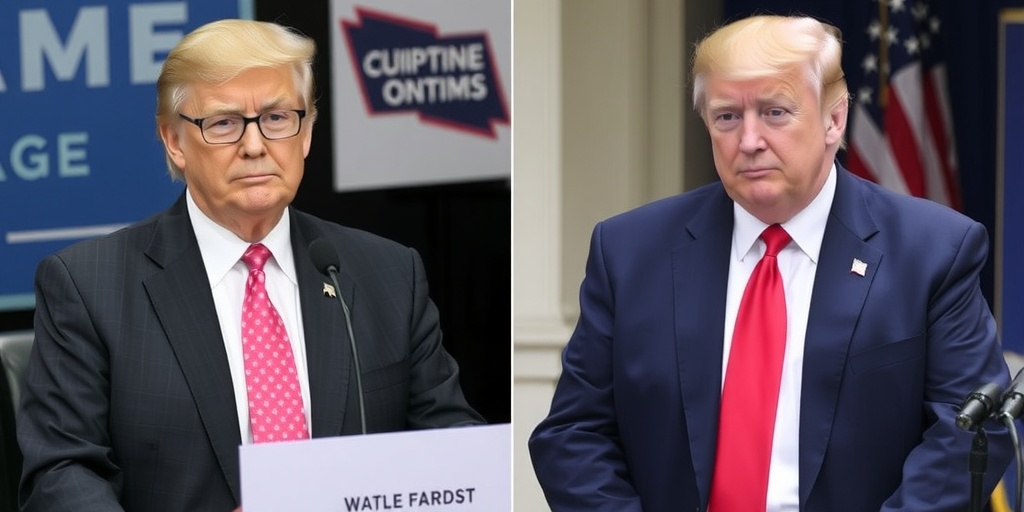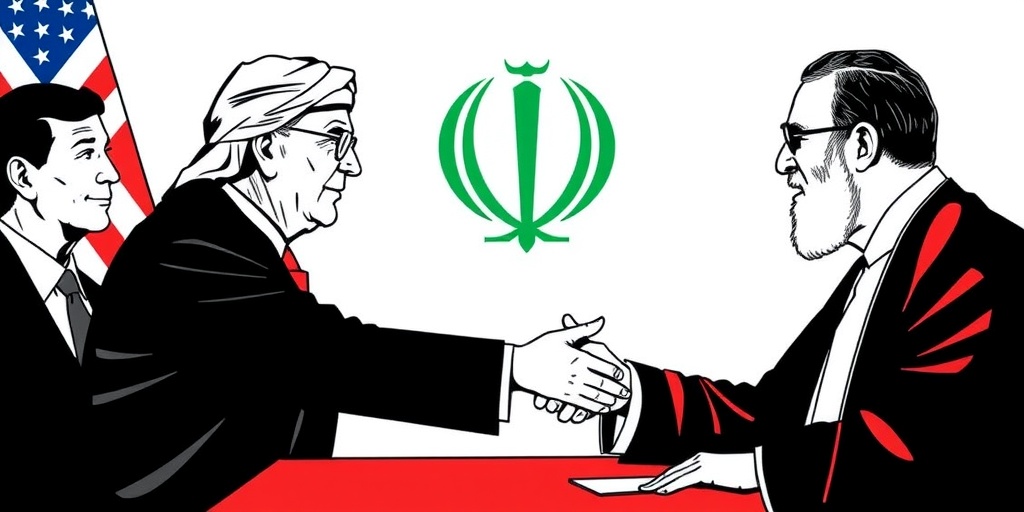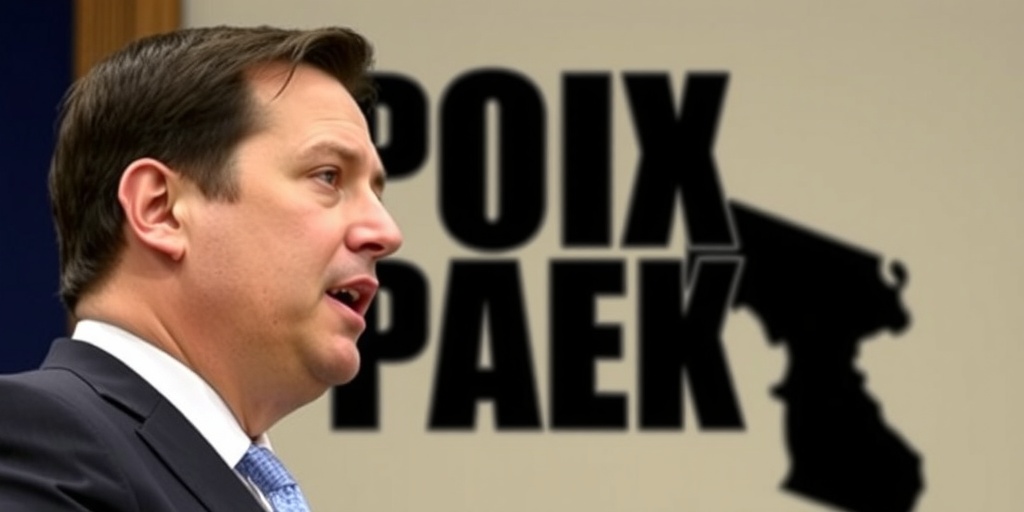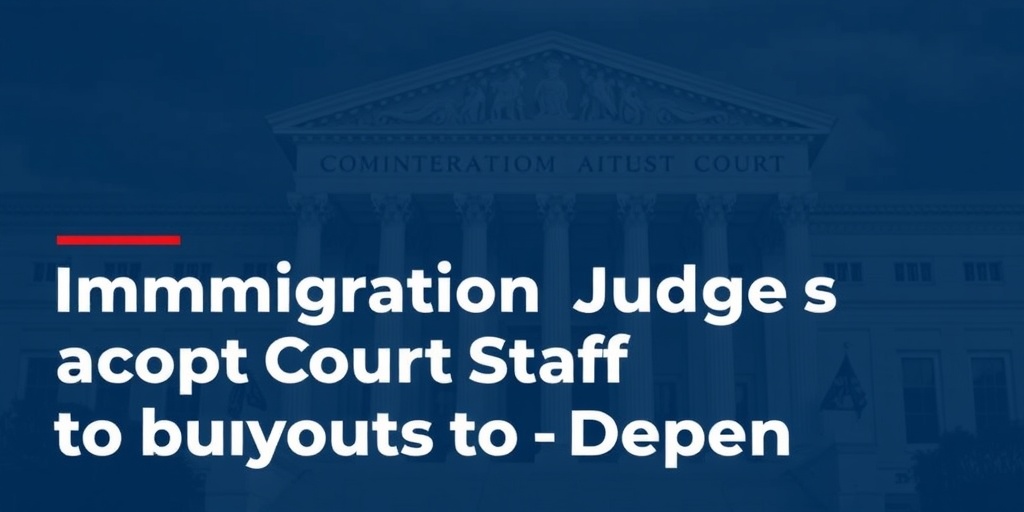Now Reading: Judge Reinstates Trump-Fired Labor Board Member
-
01
Judge Reinstates Trump-Fired Labor Board Member
Judge Reinstates Trump-Fired Labor Board Member

Federal Judge Reinstates NLRB Member, Criticizes Trump’s Executive Authority
In a significant ruling on Thursday, a federal judge reinstated Gwynne Wilcox, a member of the National Labor Relations Board (NLRB), after determining that President Donald Trump’s attempt to dismiss her was unlawful. This decision not only reinstates Wilcox but also serves as a critique of Trump’s expansive interpretation of executive power and his reported goals of consolidating presidential control over independent agencies created by Congress.
Judge Beryl A. Howell, who serves on the Federal District Court in Washington and was appointed by President Barack Obama, issued a 36-page ruling that openly challenged Trump’s vision of unchecked authority. Citing a range of Trump’s actions and statements, including a declaration made during the 2024 campaign in which he suggested he would act as a dictator, Howell expressed profound concern over the implications of such views. A notable example referenced in her ruling included an image released by the White House depicting Trump wearing a crown, which the judge indicated underscored a dangerous misunderstanding of presidential powers and the U.S. Constitution.
“An American president is not a king — not even an ‘elected’ one — and his power to remove federal officers and honest civil servants like plaintiff is not absolute,” Judge Howell emphasized in her ruling, adding that such powers must be constrained in certain circumstances—as they are in the present case.
The legal battle surrounding Wilcox’s ouster began in January when she was dismissed, leading to a significant operational paralysis within the NLRB. This independent agency is crucial for addressing labor disputes, and Wilcox’s removal left the board with only two members—a Republican and a Democrat. Federal law mandates that the board cannot conduct business without at least three members, meaning that her ouster effectively stalled the agency’s functions.
Judge Howell’s ruling reiterates the necessity of having a fully operational NLRB, arguing that the dismissal of Wilcox had detrimental effects on its ability to perform its mandated duties. Following her dismissal, Wilcox promptly filed a lawsuit challenging the legality of Trump’s actions. This case, along with several others related to executive authority, has the potential to escalate to the Supreme Court, highlighting the contentious relationship between the judiciary and executive branches.
During a hearing earlier in the week, Judge Howell reportedly joked about the likelihood that her court would only serve as a temporary stop for the matter, suggesting that the case was headed for the Supreme Court. This statement reflects the broader implications of her ruling; it underscores the continuing debate regarding the limits of presidential power, especially as it pertains to the dismissal of federal officials.
The Trump administration has responded to Howell’s ruling with immediate plans to appeal, indicating that the former president remains steadfast in his defense of his administration’s actions. The Trump legal team’s appeal will likely center around the interpretation of executive authority and whether the president has the unilateral power to terminate appointed officials in independent agencies like the NLRB.
As this legal drama unfolds, the implications for federal employment and the oversight of independent agencies remain at the forefront. The outcome of this case, and potentially others like it, could set critical precedents regarding the extent of presidential power and the protections afforded to federal employees against politically motivated dismissals.
The NLRB’s role is particularly important in the current political climate, as labor issues gain prominence in public discourse and policymaking. With Wilcox’s reinstatement, there is hope for a more balanced approach to labor relations, allowing for a more effective resolution of disputes that impact workers across the nation.
As the appeal process begins, the legal community and political observers will closely monitor developments in this case. The broader implications of Judge Howell’s ruling may resonate throughout the landscape of executive power and civil service protections, potentially challenging entrenched norms regarding the relationship between the presidency and independent governmental agencies.
In conclusion, Judge Howell’s decision to reinstate Gwynne Wilcox not only reinstates an important voice on the NLRB but also sparks a larger conversation about the boundaries of executive authority and the fundamental principles that underpin American democracy. The ongoing legal battle will likely provide crucial insights into these pressing issues as it progresses through the court system.
Stay Informed With the Latest & Most Important News
Previous Post
Next Post
-
 01New technology breakthrough has everyone talking right now
01New technology breakthrough has everyone talking right now -
 02Unbelievable life hack everyone needs to try today
02Unbelievable life hack everyone needs to try today -
 03Fascinating discovery found buried deep beneath the ocean
03Fascinating discovery found buried deep beneath the ocean -
 04Man invents genius device that solves everyday problems
04Man invents genius device that solves everyday problems -
 05Shocking discovery that changes what we know forever
05Shocking discovery that changes what we know forever -
 06Internet goes wild over celebrity’s unexpected fashion choice
06Internet goes wild over celebrity’s unexpected fashion choice -
 07Rare animal sighting stuns scientists and wildlife lovers
07Rare animal sighting stuns scientists and wildlife lovers





















